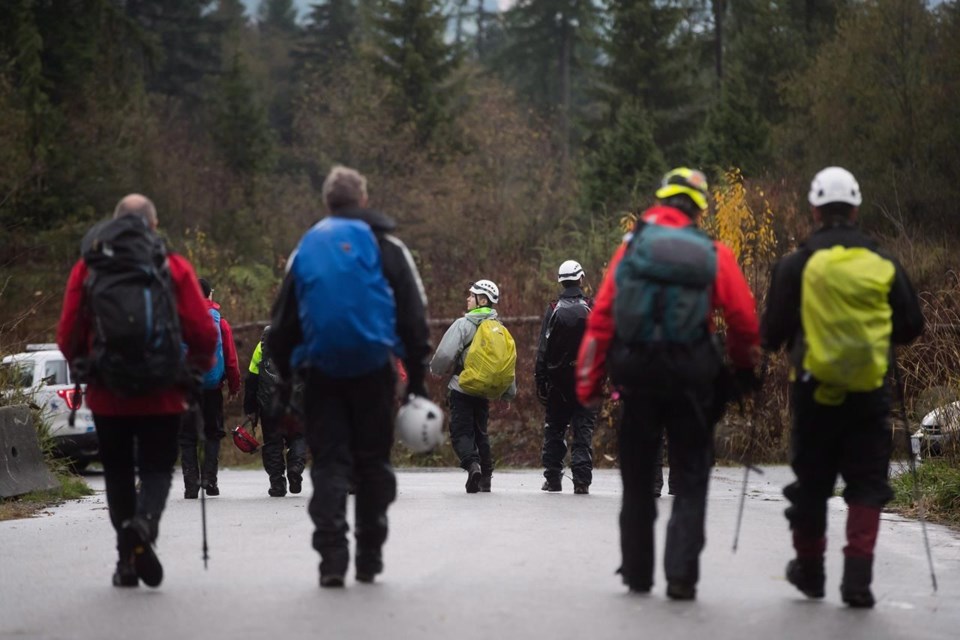VANCOUVER — Dwight Yochim says he has had some difficult relationships with funders of non-profits he's been involved with over the past 30 years, but last year was particularly tough on him and staff at the B.C. Search and Rescue Association.
Yochim, who was ousted as CEO of the association last week, says the group's volunteer personnel have been bullied, threatened and disrespected by the province's Ministry of Emergency Management and Climate Readiness.
Yochim and several other current and former search and rescue team leaders say the province has been ignoring "pressing safety issues," while leaving them in the dark about important policy decisions.
"It really comes down to the relationship between BCSARA and the staff at (the ministry) really having no respect at all for the dedication and the experience that search and rescue volunteers have," Yochim said in an interview.
"So that relationship with the province and the staff at (the ministry) has really degraded over the last year or so to the point where it's dysfunctional," he said.
In a joint letter to Premier David Eby, the rescue leaders say there is "institutionalized bullying" of volunteers and a lack of consultation, including about new equipment that could improve safety and save lives.
The letter says the ministry changed the framework of the government's relationship with volunteer search and rescue teams — 78 in all — making it no longer a "partnership."
Yochim said the situation between the association and the ministry has become "toxic," partly due to the government's opposition to their group's advocacy work on behalf of search and rescue volunteers.
He said things "changed dramatically" as the group entered year two of a funding agreement with the newly-formed emergency management branch, and he said there have been threats to pull the association's funding.
Yochim said oversight from staff at the ministry ramped up to an "extreme level," where the association was expected to produce a number of reports that took up weeks of staff time.
"It seemed like there was no end to the demand, and if we did anything with regards to advocacy, the response was an extreme reaction," he said. "It's not the kind of relationship you should have with volunteers. You should be open to new ideas. You should be listening to the subject matter experts."
Yochim had been with the association for four-and-a-half years. He said he was "released last Wednesday without cause."
He said he tried to help the association's board members deal with ministry staff, who “belittled” one board member after hours of phone calls.
But he was let go because, as he understands it, “it was easier to release me than take on that bureaucracy.”
The B.C. Search and Rescue Association's new president, Chris Mushumanski, said in an emailed statement that Yochim did not represent the organization when the letter was sent.
Mushumanski said he's been working with the ministry "over the past year and beyond for hundreds of hours resolving some challenging topics."
"Certainly from time to time there is a difference of opinion, however we have a resilient working relationship," the statement said.
Eby told an unrelated news conference that search and rescue volunteers need support, especially during the winter months, and his government is reaching out to address the teams' concerns.
George Heyman, acting minister of emergency management and climate readiness, said in a written statement that search and rescue volunteers are critical to "providing life-saving services across our entire province.
"The concerns raised in this letter are very troubling, and I intend to meet with the BC Search and Rescue Association this month to discuss and address these concerns," Heyman's statement said.
"Together I am confident that we can re-establish the trust and effective collaborative relationships that British Columbians need and expect.”
This report by The Canadian Press was first published Jan. 9, 2024.
Darryl Greer, The Canadian Press



